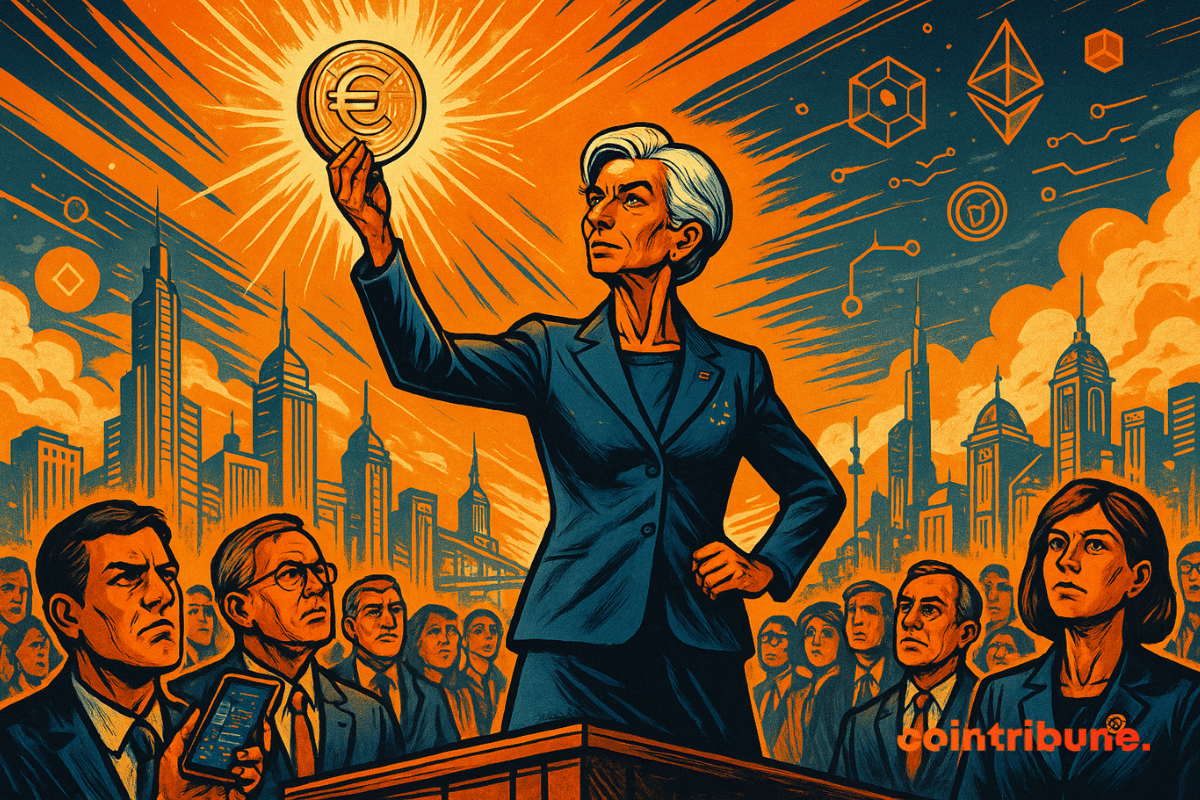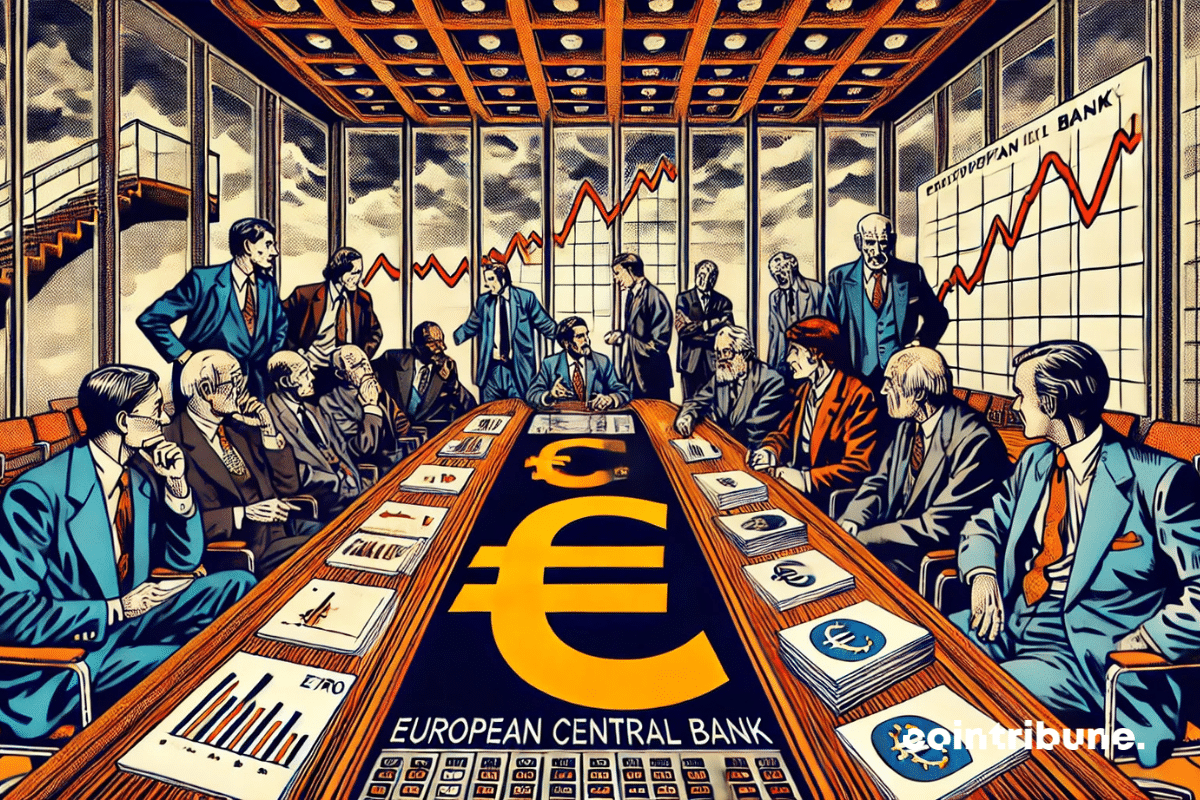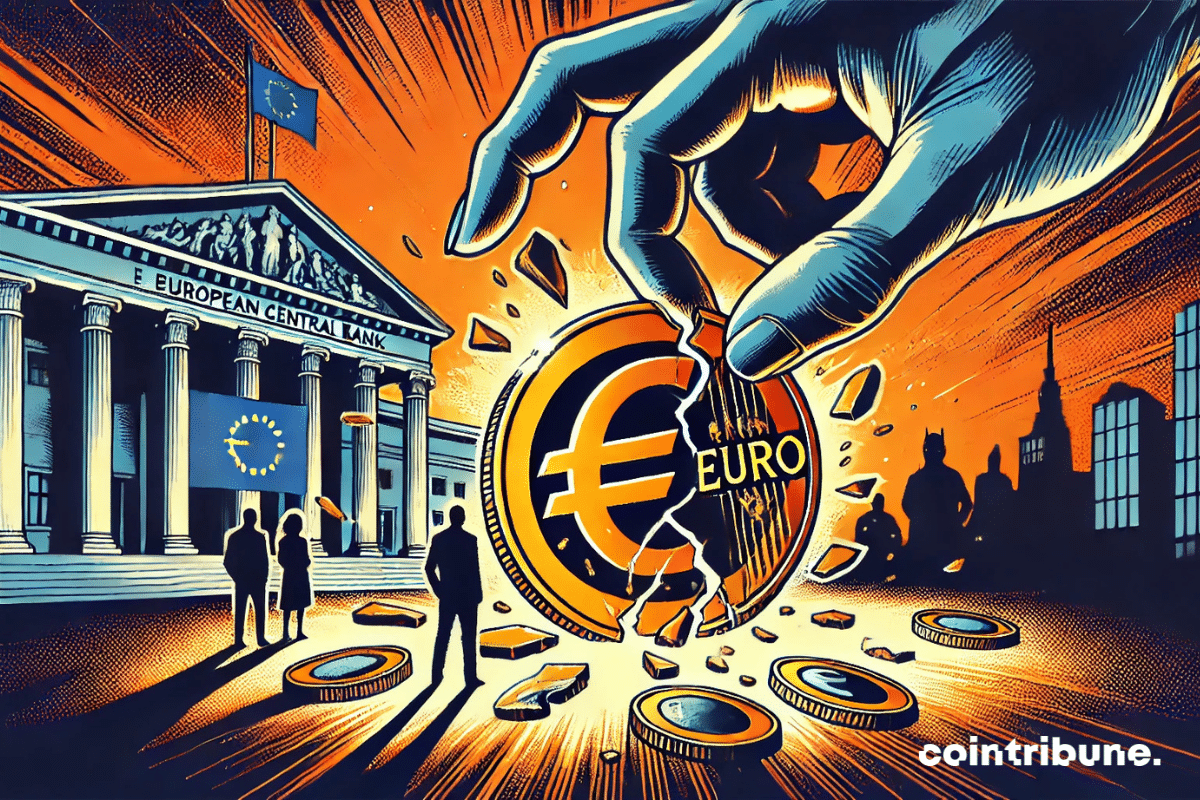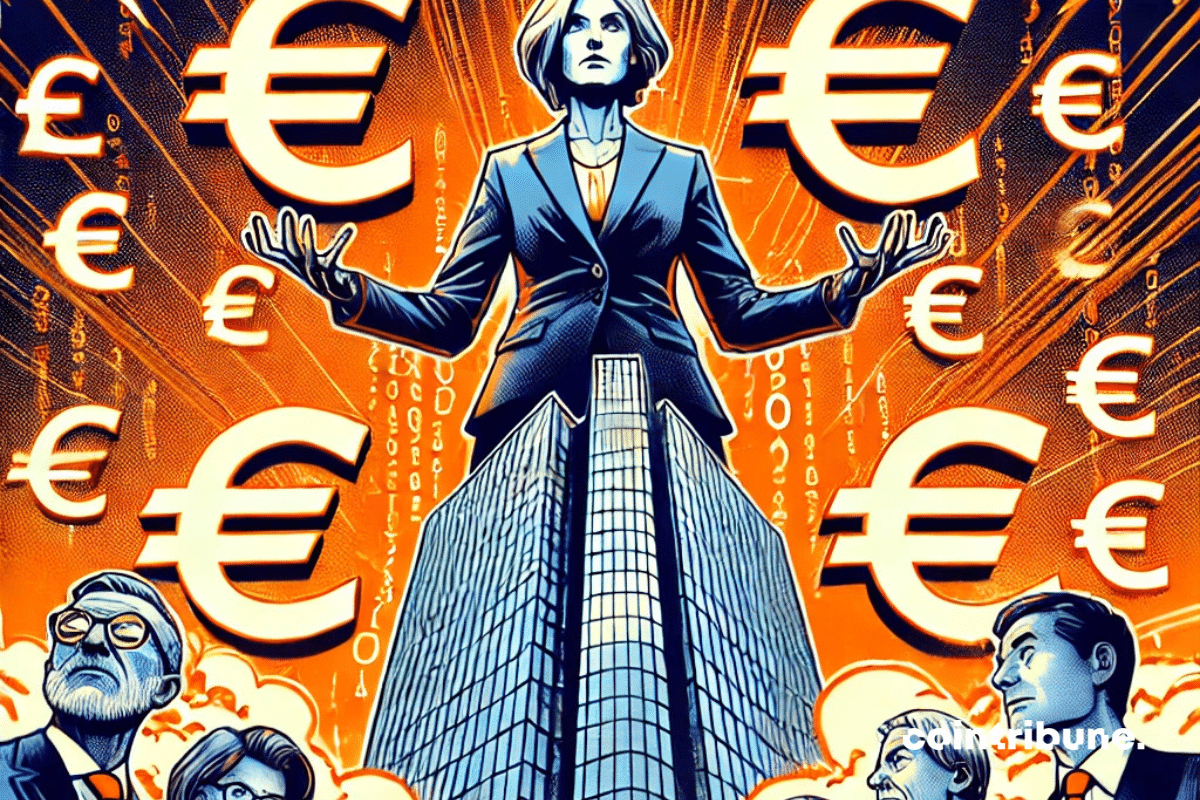Christine Lagarde urges Europe to boost its global role by strengthening trade, economy, and governance—moves that may also open new doors for crypto growth across the region.
European Central Bank (ECB)
A viral video on TikTok claims that a law banning cash has been adopted in France. In just a few days, this clip has reignited fears about the end of cash and a fully digitized society. However, this claim is false, as no legal text confirms such a ban. Behind this misleading narrative, a very real topic deserves attention: the digital euro project put forward by the ECB, which aims to complement cash rather than eliminate it.
Christine Lagarde has confirmed the planned launch of the digital euro for October 2025, pending approval from European authorities. This initiative comes in a context where a recent survey reveals a marked disinterest among Europeans for this central bank digital currency.
European economies are facing a worrying reality: a public debt that keeps rising. While budget stability is supposed to be a priority for governments, several countries in the European Union now show debt levels that far exceed 100% of their GDP. This situation raises questions about macroeconomic risks and the potential consequences for financial markets.
The ban on central bank digital currencies (CBDCs) in the United States by Donald Trump is disrupting the global dynamics of state-run digital currency projects. This historic decision raises questions about the future of CBDCs, particularly in Europe where the ECB is maintaining its course towards a digital euro.
The European economy is going through a period of instability where geopolitical tensions are intertwined with a significant slowdown in growth. In this uncertain context, the European Central Bank (ECB) is faced with a major challenge: to reconcile the need to contain inflation with the urgency of revitalizing a weakened economy. To address these issues, the institution led by Christine Lagarde announced a new reduction in its key interest rate, lowered by 25 basis points to 3%. This decision, the third of its kind in six months, reflects a gradual and cautious approach. However, this choice triggers criticism. While some praise the continuity of this policy, others point out a lack of boldness, and even argue that more ambitious measures would be necessary to stimulate consumption and investment.
The introduction of the digital euro is causing a major confrontation between the European Central Bank and the EU member states. At the heart of this battle is the control of a new monetary instrument that could disrupt the balance of financial power in Europe. Nine countries, including France and Germany, are already openly opposing Frankfurt's ambitions.
The European Central Bank (ECB) recently published a controversial report on Bitcoin, sparking intense reactions within the crypto community. The institution claims that early holders of the crypto would benefit from newcomers, calling for strict regulation, even a ban.







